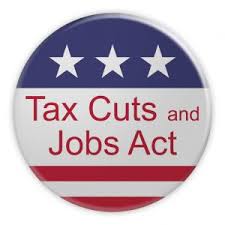 Taking clients to ballgames? Tax law change makes it costlier.
Taking clients to ballgames? Tax law change makes it costlier.
Businesses, especially smaller firms, may scale back on treating clients to major league baseball games, golf outings and the like after Congress and President Donald Trump ended a tax break for such entertainment.
Tax reform law commonly referred to as H.R. 1 Tax Cuts and Jobs Act of 2017 has changed the deductibility of certain meals, entertainment and transportation expenses.
- Prior to 2018, a taxpayer could deduct 50 percent of business meals and entertainment and 100 percent of meals provided through an in-house cafeteria or meals provided for the convenience of the employer (i.e., de minimis fringe benefit).
- Under the new law, effective January 1, 2018:
- entertainment is no longer deductible and
- meals provided through an in-house cafeteria or for the convenience of the employer are subject to the 50 percent limitation.
 Maximize tax deductions and save time on tax preparation by setting up separate general ledger accounts for business meals (50 percent deductible), entertainment (nondeductible), and recreational/social employee expenses (100 percent deductible).
Maximize tax deductions and save time on tax preparation by setting up separate general ledger accounts for business meals (50 percent deductible), entertainment (nondeductible), and recreational/social employee expenses (100 percent deductible).
The tax overhaul that Trump signed Dec. 22 eliminated a 50 percent deduction for business-related expenses for “entertainment, amusement or recreation.” Suddenly, luxury boxes at stadiums and arenas—along with theater and concert tickets—will be more costly for firms that use them to woo clients.
“I am a long-time, long-suffering season-ticket holder to the New York Jets, so a lot of time, I take clients,” said Charles Capetanakis, a lawyer and CPA at Davidoff Hutcher & Citron LLP, a mid-sized law firm in New York. Eliminating the deduction “is really going to hurt the small businesses that need to promote their business by entertaining clients.”
 The loss of the entertainment deduction is a kind of counterpoint to the Republican Congress’s sweeping tax cuts for businesses. The overhaul slashed the corporate rate to 21 percent from 35 percent. It also created a new 20 percent deduction for many partnerships, limited liability companies, sole proprietorships and other “pass-through” businesses, whose owners pay individual tax rates on the income they earn.
The loss of the entertainment deduction is a kind of counterpoint to the Republican Congress’s sweeping tax cuts for businesses. The overhaul slashed the corporate rate to 21 percent from 35 percent. It also created a new 20 percent deduction for many partnerships, limited liability companies, sole proprietorships and other “pass-through” businesses, whose owners pay individual tax rates on the income they earn.
One impact from the loss of the entertainment-expense deduction may be “smaller spends” on professional sports tickets, said Robert Delgado, the principal-in-charge of the compensation and benefits group of the Washington national tax practice at KPMG LLP. But the degree of any reduction “remains to be seen,” said Ed Sturm, a managing director at Deloitte Tax LLP, who heads the tax practice’s meals, travel and entertainment service areas.
Some have already begun grappling with that decision.
The loss of the entertainment expenses “is painful,” said Washington lobbyist Ryan Ellis, who specializes in tax issues. But there’s still a bright side. Congress didn’t touch another break: Businesses still have a 50 percent deduction for clients’ meals—whether catered or at a restaurant.
Asked how K Street lobbyists in Washington would entertain clients going forward, Ellis said: “At restaurants.”
Planning tip 1 : Maximize tax deductions and save time on tax preparation by setting up separate general ledger accounts for business meals (50 percent deductible), entertainment (nondeductible), and recreational/social employee expenses (100 percent deductible).
The new law addresses transportation two times. It disallows a deduction for the expense of any qualified transportation fringe benefit provided to an employee of the taxpayer. Qualified transportation fringe benefits include transportation in connection with travel between the employee’s residence and place of employment, any transit passes and qualified parking. Qualified parking means parking provided to an employee on or near the business premises of the employer or on or near a mass transit station. The new law later goes on to say no deduction is allowed for any expense incurred for providing any transportation to an employee of the taxpayer in connection with travel between the employee’s residence and place of employment, “except as necessary for ensuring the safety of the employee.” No guidance has been provided to clarify the meaning of this “safety” clause.
Planning tip 2: If an expense is incurred to provide any transportation to an employee in connection with travel between the employee’s residence and place of employment to ensure the safety of employees, document these safety reasons to substantiate your deduction for these expenses.
Sources:
Read more at: Tax Times blog






